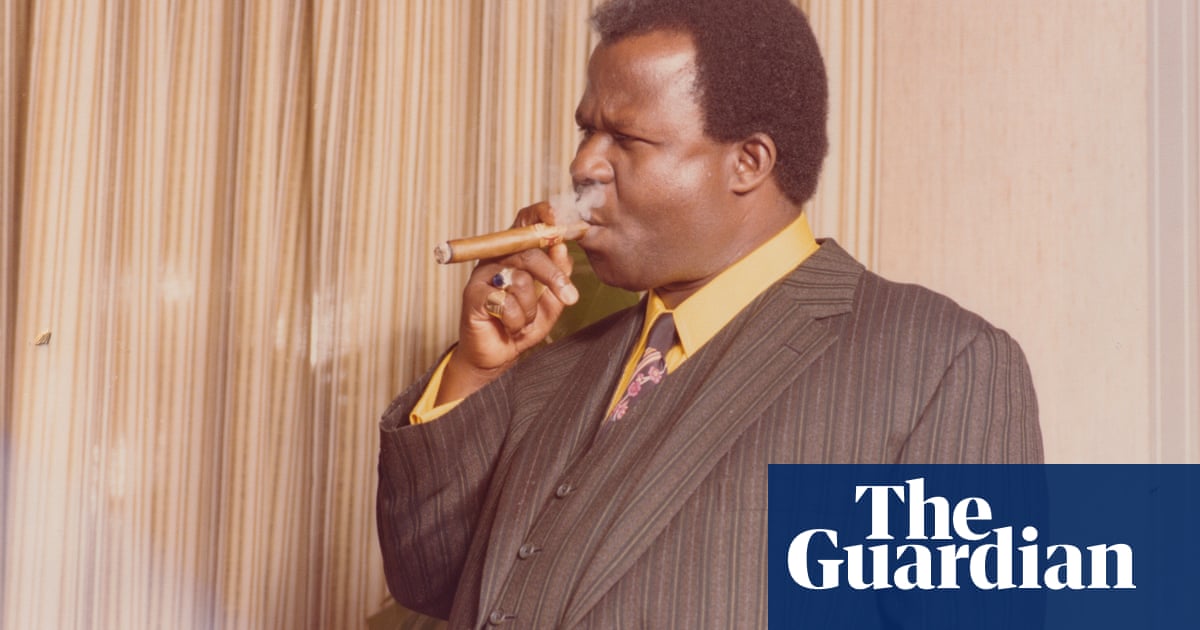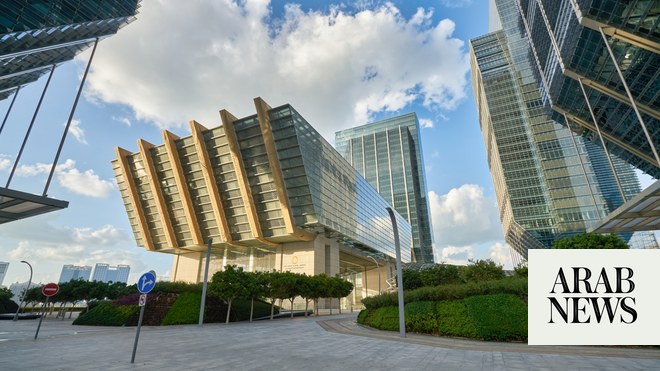
The place was Dubai. The star was Tina Turner. “As the American pop legend belted out Simply the Best,” write authors Simon Clark and Will Louch, “guests sipped vintage champagne served from an ice bar that was melting slowly into the Arabian sand on the beach, fire dancers performed and cigar rollers flown in from Cuba handed out their aromatic wares.”
The host of the party was Arif Naqvi, founder of Abraaj, a private equity fund that managed nearly $14bn and had stakes in a hundred companies. Its investors were treated to oratory from Bill Clinton, the former US president, and dinner with Buzz Aldrin, the second man on the moon. Arif’s promise to give capitalism a conscience seduced western governments and billionaire Bill Gates.
But it was all a lie, a fairy tale. In their gripping new book, The Key Man, British journalists Clark and Louch tell how Arif helped himself to the private equity group’s money, pocketing $780m, half of which is still missing. The account raises questions over whether “impact investing” and “stakeholder capitalism” are less about poverty alleviation for the world than guilt alleviation for the Davos elite.
“Arif was very early on in presenting himself as an impact investor,” says Clark, 45, via Zoom from Britain. “Impact investments emerged after the global financial crisis as a movement. You’ve got capitalists who are saying that they can invest profitably and at the same time they can address social issues like ending poverty or fixing climate, and that was what makes the Abraaj story really stand out from other financial crime stories.
“Bernie Madoff was saying to investors, give me your money, I’ll give it back to you and more because I’m going to invest profitably, and the ‘Wolf of Wall Street’ was doing the same thing. Abraaj went a step beyond that, saying to investors, give me your money, I will make you profits and, at the same time, we will end poverty in the developing world. In order to do that, he wasn’t just making an investment pitch. He was making a pitch in terms of how he could provide public goods: he could do something for the common good of the world.”
The Key Man’s opening chapter, The Boy from Karachi, begins with the young Arif at home in Pakistan, spellbound by watching the 1969 moon landing and deciding that the whole world is his stage. He was relatively well off, attending Karachi Grammar School, but did not belong to the wealthiest echelon. He excelled and went on to study at the London School of Economics, then worked for companies such as Arthur Andersen and American Express.
Eventually he moved to the financial trading hub of Dubai and founded Abraaj in 2002. With hustle, showmanship and ostentatious philanthropy, along with a willingness to work in countries seen as risky due to corruption, this “silver-haired man of soft bearish charm” became a poster boy for stakeholder capitalism.
His associates included Gates, Prince Charles and then secretary of state John Kerry. He sat on boards at the United Nations and Interpol. He was the subject of glowing profiles in the New York Times and Forbes magazine. And he pitched himself to western governments which, stung by the financial crisis and Occupy Wall Street movement, were hungry for ways to show they cared.
Louch, 30, recalls: “Barack Obama travelled to Cairo and made an amazing speech about healing the US’s relationship with the Muslim world. A key part of his pitch was to use entrepreneurship and American style capitalism to help end or tackle the issues with unemployment that maybe were linked to terrorism there.
“Arif heard this speech and went to Washington. He took on board what the US government was looking for and then basically presented himself as being someone that could help administer the Obama administration’s vision for resolving a lot of the social issues there by investing in businesses, by creating jobs, by growing the economy.
“I think in total the US government pledged over $500m to Arif’s firm for which he – and this is something that’s not necessarily always mentioned in the grand speeches that Arif was giving – would earn significant management fees for investing government money in the region.”
Arif built numerous contacts in Washington amid discussions about a Marshall Plan for the Middle East for which he would manage the funds. Clark adds: “So there was this convergence of public and private policy. It was part of a global trend, globalisation, and Arif was bang in the middle of that.
“By going to Davos every year and networking there in Washington and London and elsewhere, he built this incredible network and, because of where he comes from and his ability, he was seen as a person who could be the key man in terms of delivering profits and policy outcomes for western investors and governments.”
The authors chronicle how Arif flew on a Gulfstream jet with a personalised tail number, M-ABRJ, sailed on yachts and compared himself to the mythical adventurer Sinbad. He owned a sprawling estate in Oxfordshire, fixed up the local cricket pavilion at great expense and lavished more than $348,000 on a dinner at Davos attended by then Pakistani prime minister Nawaz Sharif.
But something did not add up. Abraaj was spending more than it earned and secretly moving money around to plug holes in its balance sheet. Clark explains: “If you raise a one billion dollar health care fund for building clinics and hospitals in Africa and South Asia, as Abraaj did, then you have to just use that one billion dollars for building and buying hospitals.
“But Abraaj would call money from investors – including Bill Gates who put $100m into this fund and gave confidence to others to put money in as well – and say we’re going to buy or build a hospital in Nairobi or Karachi or Lahore and the money would be sent by the investors. Then Abraaj would siphon it out of the fund and put it into a central pot where they were mixing all of their monies together and spend it on whatever their priority was like salaries, or loans coming due, or the previous investment because they used their money for something else so to keep them quiet let’s use this money instead, which is a Ponzi-like situation.
“That’s where they really came undone and because their finances were not disclosed to the public and were not being properly disclosed to investors, they were able to hide this financially dire situation for years, until it came unstuck at the end of 2017.”
Finally, in late 2017, Andrew Farnum, an executive with the Gates Foundation, raised the alarm and demanded to see bank records, wondering why the money was not being invested in hospitals as promised. After a tipoff from a whistleblower, Clark and Louch, reporters for the Wall Street Journal based in London, broke the story that investors were investigating Abraaj for mismanaging their money in early 2018.
The firm collapsed with $385m unaccounted for. Arif was arrested at Heathrow airport, charged by the US government with fraud and money laundering. He is currently out on $19m bail, living in South Kensington, wearing an ankle tag and awaiting extradition. He denies wrongdoing.
But his downfall raises broader questions about stakeholder capitalism and whether it can truly be a tool to combat poverty or the climate crisis – or is merely another smokescreen for the super-rich to pursue even more wealth.
Louch insists: “I think the message absolutely isn’t that stakeholder capitalism is a myth. The book shows, and other examples in the financial system today show, that it can be a good thing tackling some of the biggest issues that we have today.
“One of the takeaways from this book is that a lot of very wealthy men – largely men – meeting in Davos once a year are probably not alone going to be the people that have the answers to this problem. A more inclusive conversation involving other members of society, not just people that have lots of money and power and influence, is probably the way that stakeholder capitalism would actually maybe ever work.”
Clark concludes: “It’s great that capitalists say they want to help make the world a better place, but citizens and investors need to be able to see exactly how they’re going about that so that everyone can verify whether or not they are doing what they say. There is an absolute need for a more inclusive conversation about the global economy in general and about poverty alleviation in particular.
“It should become as unacceptable for a group of wealthy people to talk about poverty alleviation as it is for a group of men to talk about gender equality. In order to get a reality check and ground this conversation about impact, there is a need for the people who are supposed to be the beneficiaries of impact investing to be included in the discussion about how, where and when to deploy capital to produce these outcomes. Otherwise, it’s likely to end up at best as a PR stunt and at worst as a fraud.”
The Key Man is out now












